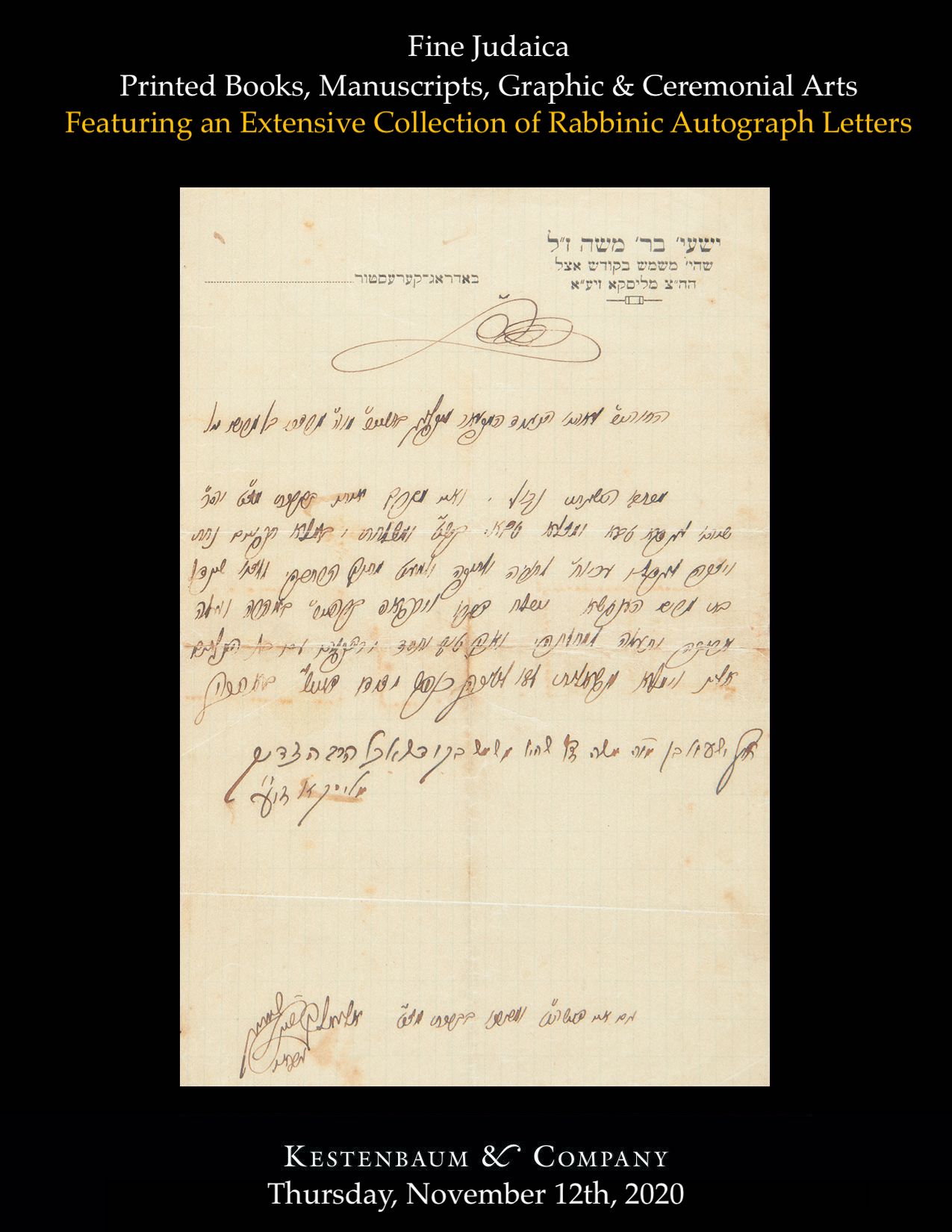Henry J. Leovy. The Laws and General Ordinances of the City of New Orleans.

Auction 91 |
Thursday, November 12th,
2020 at 1:00pm
Fine Judaica: Printed Books, Manuscripts, Graphic & Ceremonial Arts Featuring an Extensive Collection of Rabbinic Autograph Letters.
Lot 125
(AMERICAN-JUDAICA).
Henry J. Leovy. The Laws and General Ordinances of the City of New Orleans.
New Orleans: E.C. Wharton 1857
Est: $600 - $900
A prominent New Orleans Jewish lawyer and City Attorney, Leovy would serve as a Colonel and a military judge in the Confederate Army. He assisted in the development of the CSS Hunley, the first submarine to launch a successful attack on a ship during wartime. At the end of the War he helped Judah Benjamin escape from pursuing federal officers (see Rosen, The Jewish Confederates, 143, 322).
Leovy's Introduction is an "Historical Synopsis" of the development of the City of New Orleans, from the year 1682.
This is the first edition of Leovy's comprehensive compilation of the legal architecture of New Orleans; revisions appeared in 1866 and 1870. Ordinance No. 575 (p. 195) empowers Leovy to publish the general ordinances, for a fee of $500.00. The work is an informative picture of New Orleans at mid-century. A variety of subjects, appropriate to this busy Southern port city is covered in these pages: Auctions, chimneys, city government, smoke houses, stables, corporations, streets, water, gas, charitable associations, tobacco, wharves, vehicles, cemeteries, schools, river pilots, prisons, police, fire department, etc.
Pages 257-274 are devoted to "Slaves and Free Persons of Color" and "Slave Marts and Negro Traders." Activities of slaves and Free Negroes are closely regulated, their movements and activities severely limited. They are forbidden to assemble, under penalty of jail and lashings; rigid curfews are established; association between slaves and Free Negroes is forbidden. Merchant seamen of color whose ships dock in New Orleans must leave the city with their ships. A variety of crimes are delineated. Markets for the sale of slaves must be "enclosed as to prevent slaves from being seen from the streets; they must be kept properly ventilated, cleaned, and in good order…"
